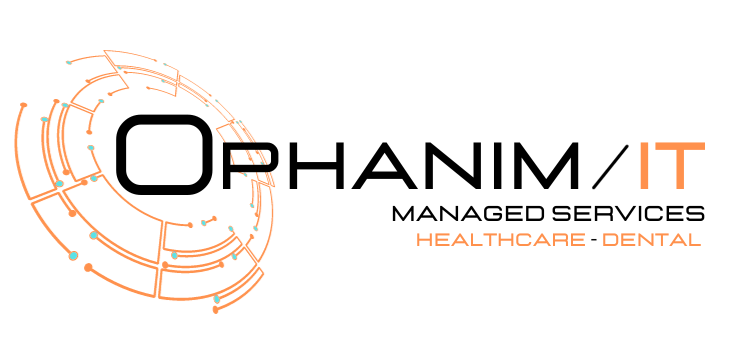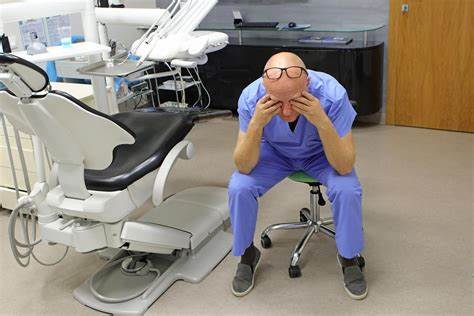In the US, more than 10% of all dentists are affiliated with a dental practice supported by a dental support organization (DSO), according to 2019 ADA Health Policy Institute research. The figure rises for younger and newly qualified dentists.
The reason is simple: dental support groups allow dentists to spend more time with patients and enjoy a better work-life balance.
Unfortunately, DSOs aren’t always best placed to handle every aspect of running your practice. In particular, their lackluster efforts in dental computer support leave practices open to regulatory noncompliance and even cybersecurity attacks.
In this article:
- What is a Dental Support Organization (DS)?
- Challenges Dental Support Groups Face Digitally
- Comparing DSOs to Specialist IT Support
What is a Dental Support Organization (DS)?
A dental support organization (DSO) or dental support group provides business management and support services to dental practices. In short, DSOs allow for simple distribution of labor: they handle non-clinical operations, including billing, payroll, and marketing, while dentists handle clinical services.
Common DSO-provided tasks include:
- Handling patient scheduling, billing, insurance claims, and other paperwork.
- Managing recruitment, training, payroll, benefits, and employee relations.
- Maintaining practice management software, electronic health records, and cybersecurity measures.
- Developing strategies to attract new patients and retain existing ones, managing online presence, and executing promotional campaigns.
- Ensuring the practice adheres to healthcare regulations and standards, including OSHA and HIPAA.
- Providing accounting services, financial reporting, and advice on financial planning and investments.
Centralizing all these tasks allows DSOs to operate on an economy of scale, improving practice efficiency while reducing overheads.
Challenges Dental Support Groups Face Digitally
The problem that dental support groups face is similar to those faced by practices. While DSOs operate a larger economy of scale than practices, they still don’t have sufficient expertise to handle all the services they offer adequately.
For example, DSOs may have a small team managing the IT services over several practices. But they cannot, for economic reasons, support a team with all the necessary skills to provide the round-the-clock care required for a modern IT system.
Moreover, dental support groups continuously grapple with the evolution of software and cyber threats. Protecting patient information requires a sophisticated cybersecurity system that goes beyond the expertise of a typical DSO IT team.
On the regulatory compliance front, DSOs must keep abreast of changing regulations regarding patient privacy, advertising standards, tele-dentistry, and more. Considering DSOs manage regulatory compliance across multiple jurisdictions, they must navigate a complex legal and technical landscape that may necessitate external consultancy – further adding to operational costs.
Comparing DSOs to Specialist IT Support
The challenges faced by dental support groups aren’t insurmountable. However, the demands of running all services in-house become apparent when compared to a specialist dental computer support agency.
Let’s explore the differences:
Salaries vs. Outsourcing Costs
In-house DSO IT teams require sizable salary commitments. Specialists in cybersecurity, network management, regulatory compliance, and new dental patient management software are all necessary – and must be compensated in line with market rates.
Consider: according to Glassdoor, the average cybersecurity expert makes $77K to $114K per year. Meanwhile, a network manager‘s salary is significantly higher at $97K to $154K annually. Dental support groups must find the money not only for a single individual but also for a whole team of industry experts. Even a small team of 5-10 people could end up costing close to a million dollars per annum.
On top of that, DSOs must also supply marketers, accountants, tax experts, business administrators, and much more to provide the full gamut of services offered.
In contrast, specialist IT support companies solely focus on hiring the best and brightest computer and cybersecurity experts in the industry. By outsourcing dental computer support, DSOs and practices gain greater expertise without the associated financial risk.
Expertise
The dental support group business model is generalist in nature – or, as the saying goes, “a jack of all trades but master of none.” That means dental practices are offered a comprehensive selection of services, but none are at the technical level of a dedicated company.
This lack of expertise may be fine in accountancy or marketing, where the ramifications aren’t significant. However, in IT and cybersecurity, a data breach, regulatory noncompliance, or system downtime can significantly damage practice credibility or information security.
With greater expertise and resources, outsourcing these critical services safeguards a practice’s data and computer systems. That’s not a distant threat – in fact, the US Department of Health Services warned the dental community of the growing menace from ransomware operators.
Scalability
Scalability is a common problem in most businesses. As a company rapidly expands, it finds its current resources unable to cope with new demands. In-house IT departments are routinely at the forefront of this struggle – and recruiting and training new staff is time-consuming and costly.
Outsourcing IT support, on the other hand, can scale quickly based on the needs of a growing organization. Most of these services operate on a subscription basis or similar systems. Dental practices can request further support or expand their services to scale up as and when their business grows.
Indeed, specialist firms have the capacity to deploy additional resources swiftly – often critical in supporting dental support groups acquiring new practices or expanding their geographic footprint.
Closing Thoughts
DSOs or dental support groups provide valuable services to a significant proportion of the US’s dental practices. From financial management to dental computer support, DSOs free up dentists and other staff to spend more time with patients.
However, as a generalist organization, dental support groups struggle to provide the specialist expertise and services required for adequate IT protection. That leaves practices vulnerable to regulatory noncompliance or, worse, a data breach. As the threat from cybercrime grows, practices cannot afford to risk their data security on lackluster dental IT support.
Only by outsourcing their dental computer support to a specialist agency can practice stay protected as they grow and scale.
Sources:
https://adanews.ada.org/ada-news/2022/march/main-types-of-dsos
https://www.dentalcarealliance.net/
https://adanews.ada.org/ada-news/2023/march/how-to-protect-your-dental-practice-from-cyberattacks
https://adanews.ada.org/ada-news/2022/march/pathways-to-dentistry-dsos-offer-nonclinical-support







